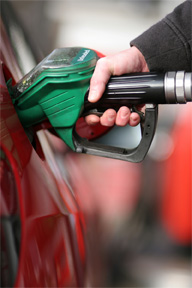Conserving Gasoline Is Always in Style
 | (NewsUSA) - Whether you are trying to stretch the family budget, help the environment, or lessen the nation's dependence on imported oil, conserving gasoline can benefit most everyone.
"Using less gasoline is one of those rare win-win situations," notes Martin Lawson, editorial director of the National Institute for Automotive Service Excellence (ASE), an independent nonprofit dedicated to improving the quality of automotive service and repair through the voluntary testing and certification of automotive technicians. "Families can benefit immediately while helping the environment in the long run." Whatever your motivation, here are some gas saving tips from the pros at the ASE: Monitor tires. Under-inflated tires or poorly aligned wheels waste fuel by forcing the engine to work harder. (Let the tires cool down before checking the air pressure.) Out-of-line wheels, as evidenced by uneven tread wear, should be aligned by a professional. Remove excess weight. Remove unnecessary items from the vehicle. Store only essentials in the trunk. Less weight means better mileage. Promptly remove rooftop cargo carriers to reduce air drag. Consolidate trips and errands. Some trips may be unnecessary. Also, try to travel when traffic is light so you can avoid stop-and-go conditions. Avoid excessive idling. Shut off the engine while waiting for friends and family. Observe speed limits. Speeding decreases your miles per gallon. Drive gently. Sudden accelerations guzzle gas. Anticipate traffic patterns ahead and adjust your speed gradually. Use windows and air conditioning wisely. Your mileage should improve if you keep the windows closed at highway speeds, since air drag is reduced. This is true even with the air conditioning on -- assuming that the system is in good working order. But turn the air conditioning off in stop-and-go traffic to save fuel. Keep your engine "tuned up." A well-maintained engine operates at peak efficiency, maximizing gas mileage. Follow the service schedules listed in the owner's manual. Replace filters and fluids as recommended; have engine performance problems corrected at a repair facility. A well-maintained vehicle will last longer, too. Given today's high-tech engines, it's wise to have this type of work done by auto technicians who are ASE-certified in engine performance. Repair shops that employ certified auto technicians display the blue and white ASE sign. For more information, including seasonal car care advice, visit www.ase.com. |